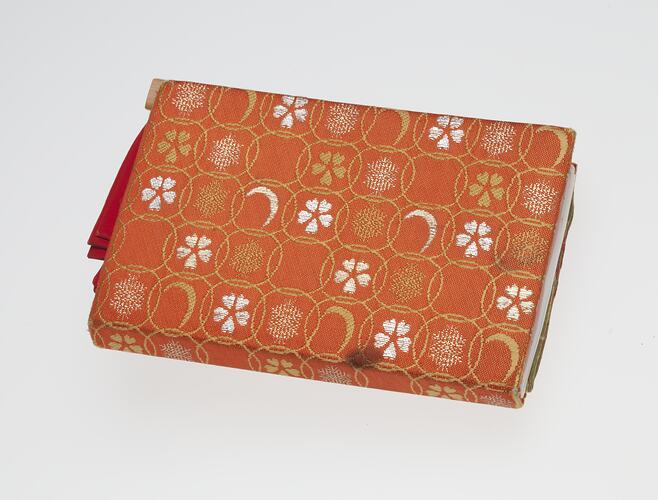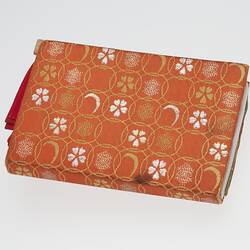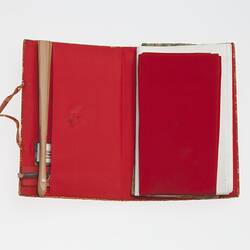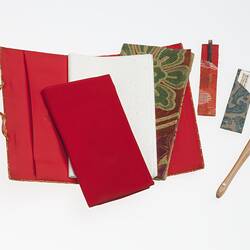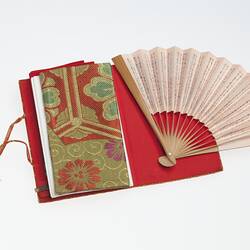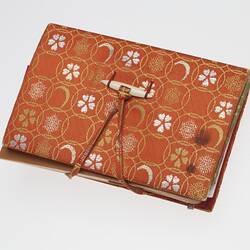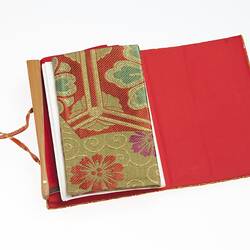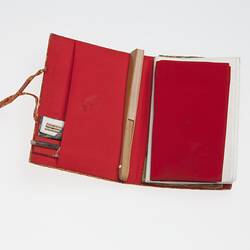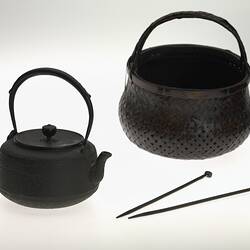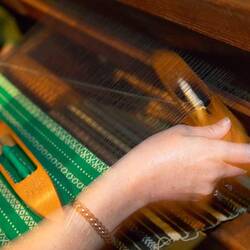Summary
Japanese cloth carrying case ('fukusa basami' in Japanese). It is used as part of the traditional Japanese tea-ceremony. It was brought to Australia by Masumi Hiraga Jackson when she immigrated from Japan in 1985.
Masumi Hiraga Jackson was born in Nirasaki, Japan in 1935, one of ten children. Her mother Kino was a skilled weaver who wove and sewed silk kimono, a highly regarded skill. Masumi studied at universities in Tokyo and Canberra and in 1984 married an Australian. She immigrated to Melbourne in 1985 but sadly her husband died two years later. Masumi decided to remain in Australia and immersed herself in traditional Japanese cultural practices such as Noh theatre, Ikebana and Shimotske paper doll-making. She performs and instructs these art forms in Australia and overseas, and returns to Japan every year to see her family, undertake Ikebana lessons, practise her Noh performance and to purchase materials for doll-making.
Physical Description
Orange yellow and silver silk brocade carrying case, with bone fastener. Case folds out to reveal numerous items used during the Japanese tea ceremony. Case contains a small bamboo and paper fan, folded rice paper sheets, a green, red gold and pink brocade cloth, a red silk cloth, a small blue fabric toothpick holder with three toothpicks and a small red fabric holder with a larger wooden pick.
More Information
-
Collection Names
-
Collecting Areas
-
Acquisition Information
Donation from Mrs Masumi Hiraga, 21 Mar 2007
-
Place & Date Made
-
User
Mrs Masumi Hiraga, Glen Iris, Victoria, Australia, 1985-2007
-
Classification
Cultural identity, Ethnicity - cultural practices, Food & drink production
-
Category
-
Discipline
-
Type of item
-
Object Measurements
155 mm (Width), 30 mm (Depth), 98 mm (Height), 4.5 mm (Outside Diameter)
-
Keywords
Brought Goods, Cultural Identity, Cultural Traditions, Immigration, Japanese Communities, Japanese Culture, Japanese Immigration, Theatrical Performances
